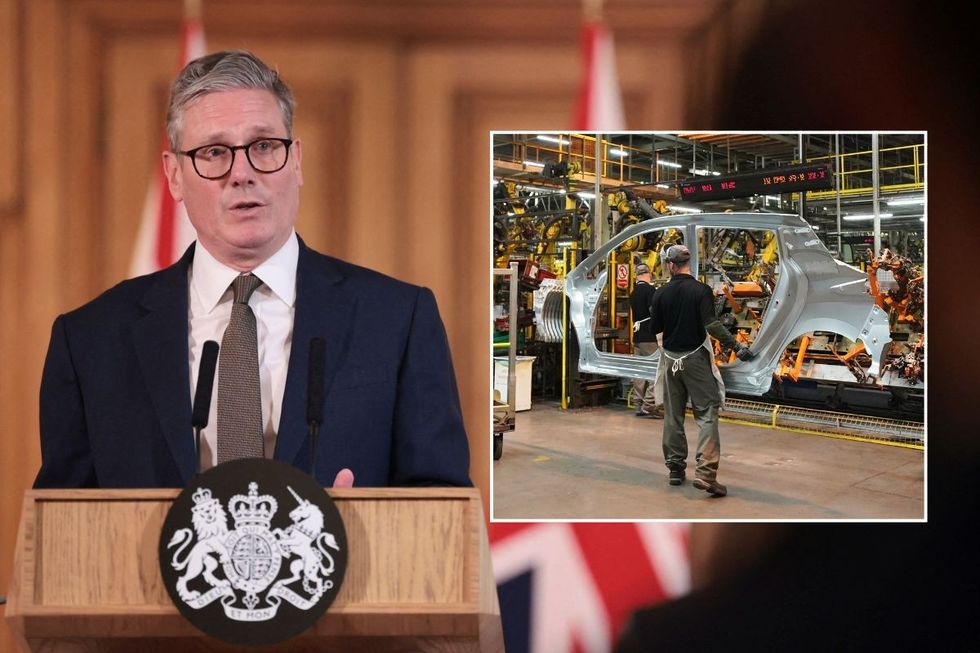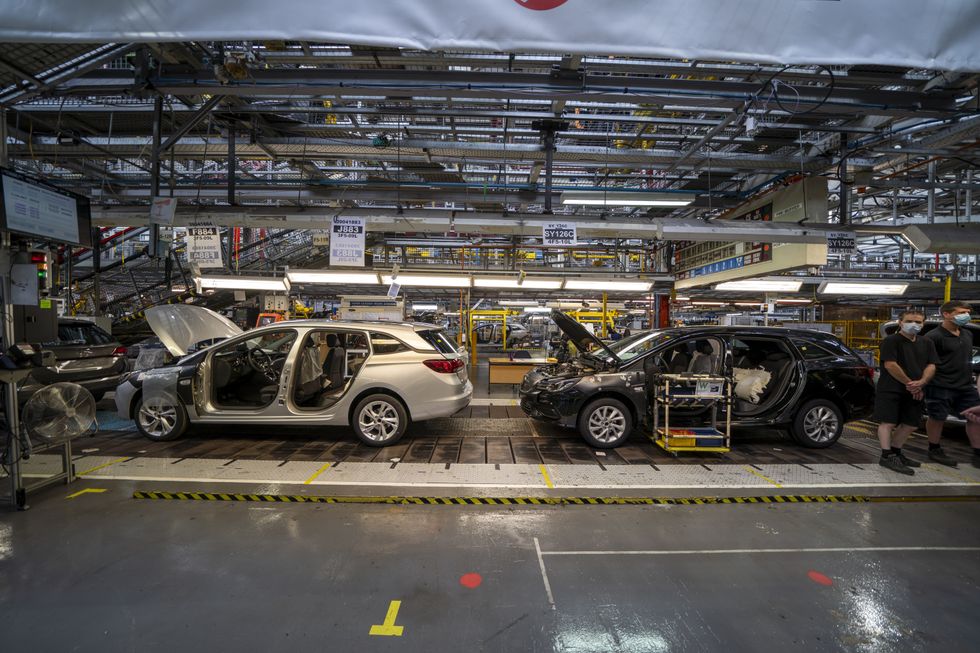Labour accused of ignoring car industry with a 'real lack of understanding' as UK risks losing 144k jobs

WATCH: Stellantis announces the closure of Vauxhall's Luton factory with 1,100 jobs at risk
|GB NEWS

The UK car industry is worth £37billion and supports more than 850,000 jobs throughout the supply chain
Don't Miss
Most Read
Automotive industry experts have slammed the Government after it failed to properly address challenges faced by more than 700,000 workers in the car sector.
The Institute of the Motor Industry (IMI) said it was "disappointed" that Labour had not focused on the automotive sector in the modern industrial strategy.
The new industrial strategy outlined funding and additional support for "growth industries" including defence, engineering, digital and construction.
However, there was very little mention of the automotive sector, despite it facing soaring energy costs and a growing backlog of vacancies.
Do you have a story you'd like to share? Get in touch by emailing motoring@gbnews.uk

The UK's leading automotive industry group has criticised the Government for not doing more to help the sector
|PA
Sarah Sillars, Interim CEO of the IMI, said Labour's pledge to invest £1.2billion in training over the next decade was "encouraging" but more should have been committed.
She accused Labour of failing to meet its pre-election promise of a dedicated Automotive Strategy, saying it had been "kicked into the weeds".
Labour's election manifesto pledged to fulfil its targets set out in its Plan for the Automotive Sector.
This promised to replace the Apprenticeship Levy with a Growth and Skills Levy, and support colleges to specialise in the technical skills needed for the future, including for the electric vehicle transition.

The IMI has warned that the UK could have a massive backlog in the automotive workforce in the coming years
| PAHowever, Sillars said: "This is despite the automotive sector playing a pivotal role in the UK's industrial landscape, providing 866,000 jobs inside and outside the factory gates and £37billion GVA (2023).
"There seems to be a real lack of understanding of the fundamental role the people and businesses that operate outside the factory gates play, particularly in relation to emerging automotive technologies, with the growth of electric motoring being critical to the Government's net zero targets."
The IMI was "hopeful" that Labour would provide support for the workforce in the modern industrial strategy, having worked with ministers and departments since the Green Paper was published.
Recent data from the IMI outlined that there are more than 16,000 unfilled roles in the automotive sector, in addition to potentially needing to replace 144,000 jobs by 2032.
LATEST DEVELOPMENTS:
Sillars noted that the lack of support "severely impacts the sector's ability to be future-ready" as the UK moves to replace petrol and diesel cars with electric vehicles.
"Despite contributing significantly to employment, net zero ambitions, and clean growth, automotive is being overlooked across several government policies," she added.
"For example, the recently published Skills England Report under-represented the automotive aftermarket and technician workforce."
The IMI said it would continue to work with employers, policymakers and educators to address specific challenges, including finding skilled candidates and confirming funding.
Speaking at the International Automotive Summit in June, Business and Trade Secretary Jonathan Reynolds described the car production sector as "typifying the best of British".
He added that the move to zero emission motoring was one of the "greatest technological opportunities of our time" and that he wanted to set people up, likening himself to former Liverpool captain Jordan Henderson.
The event, which was hosted by the Society of Motor Manufacturers and Traders (SMMT), heard that Reynolds supported calls to double the annual output of vehicles at UK factories to reach 1.3 million by 2035.
He also backed plans to reduce electricity prices for high-intensity businesses, given that the UK has some of the most expensive energy costs in the world. By 2027, it is hoped the UK will have lower energy costs than the Czech Republic and Italy, and be on par with Germany.










